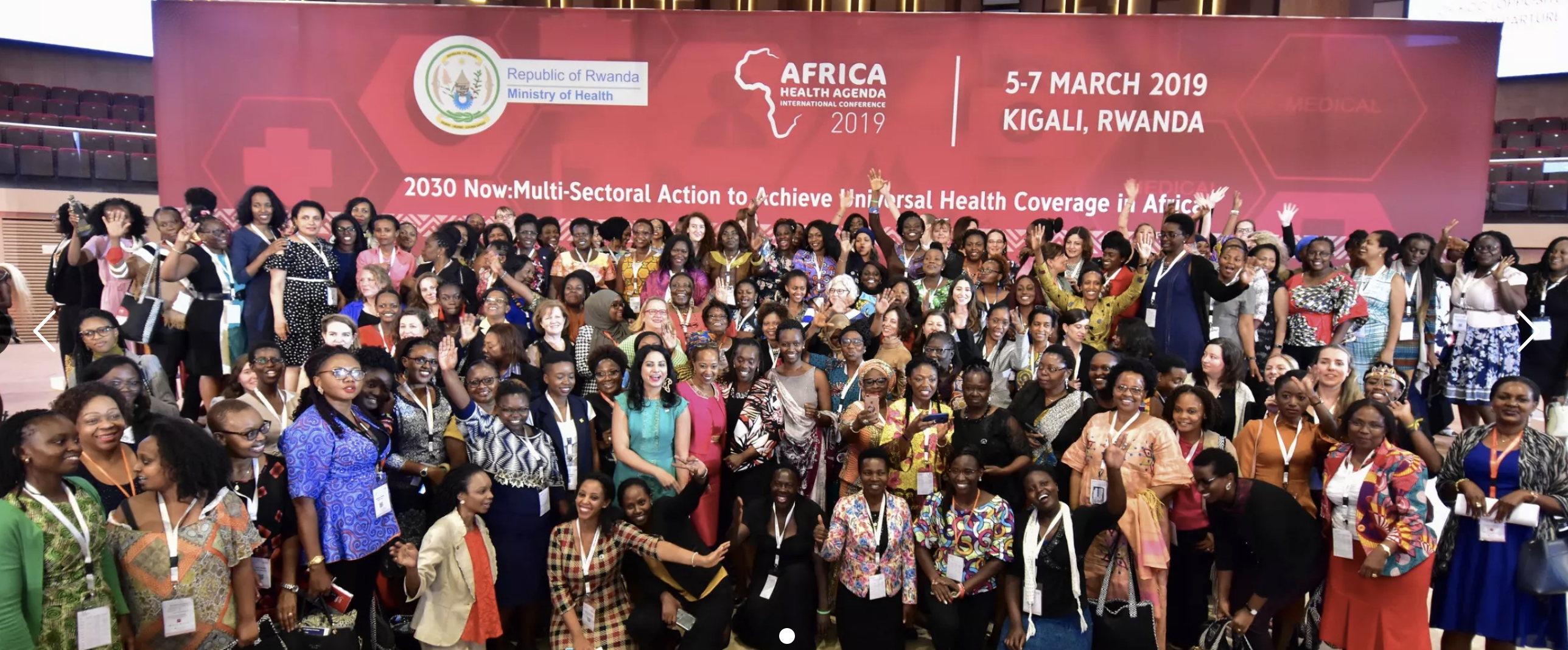
Three reasons to be optimistic for UHC’s future post-AHAIC 2019
Last week, the Rwandan Ministry of Health and Amref Health Africa hosted the Africa Health Agenda International Conference (AHAIC) in Kigali, with the aim of turning laudable commitments on universal health coverage (UHC) into tangible action. The conference’s 1,500 participants from nearly 50 countries provided a variety of lenses to view and discuss UHC, as well as some of Africa’s most pressing health challenges, such as HIV/AIDs and sexual and reproductive health. This created a kaleidoscope of conversations – led by youth, community health workers, researchers, policy-makers and private sector actors – which reminded us why all voices must be heard as we work towards health for all.
These discussions came at a critical point in Africa’s pursuit of UHC. Over the past few years, countries across the continent have come to recognize UHC as a smart and achievable goal. Over 100 low- and middle-income countries have taken steps to deliver UHC, and six African Union countries have already achieved the 2001 Abuja Declaration commitment to dedicate at least 15% of government annual budgets to the health sector. Yet, 11 million Africans are still pushed into poverty every year due to costly medical expenses, and many still don’t have sufficient access to health services.
While these challenges loomed large at AHAIC, there were many opportunities and impressive developments to progress UHC that made us optimistic for the movement’s future. Here are our top three:
#1 Prioritizing women’s sexual and reproductive health and rights (SRHR) has been recognized as key to achieving UHC.
UHC’s goal of delivering affordable and quality health services for all requires meeting the needs of women and girls everywhere. This call was repeated throughout the conference, from partner-led side events showcasing country case studies on how to integrate SRHR services into UHC policies, to the conference’s final session on the eve of International Women’s Day featuring a panel of women leaders in global health.
Cynthia Oning’oi, a female-genital-mutilation survivor (FGM) and advocate from Kenya on the panel received a standing ovation after recounting her harrowing personal FGM story, battle with mental illness, approach to forgiveness and finally, her motivation for advocacy. Another panelist, Dr. Amina Jama Mahmud, founder of the first Women in Global Health Chapter in Africa, in her home country, Somalia, showed us how women must work to take up the space they deserve in male-dominated fields (e.g., STEM).
The closing ceremony marked the launch of the Women in Global Health Africa Regional Hub, a platform that aims to bring gender equality to global health leadership. A range of women advocates, health workers and decision-makers in global health were also awarded for their leadership, including Hon Dr. Diane Gashumba, Rwanda Minister of Health; Katja Iversen, CEO of Women Deliver; and Senait Fiseha Alemu, a Health Extension Worker from Ethiopia.
#2 Mobile technologies and innovations are accelerating progress towards health for all.
The number of mobile phone subscriptions now outnumbers the number of people on this planet. Numerous sessions spotlighted health professionals capitalizing on this technology’s vast influence to reach last mile populations and advance health equity. For example, Amref Health Africa and PharmAccess Foundation joined forced to launch i-PUSH, a new program in Kenya that leverages mobile technology to connect patients, community health workers and doctors to health care financing, quality health care and information empowerment. The project will primarily focus on improving access to quality care for women and their children by providing tailored benefits through the mobile health care wallet, as well as incentives to save for health care costs.
Other innovations showcased throughout the conference included robotics and artificial intelligence to facilitate health care delivery through MINT Innovations in Ghana; drones to deliver blood products to remote communities through Zipline in Rwanda; and electronic immunization registries that put critical health data in the hands of frontline health workers through PATH.
#3 Youth and policy-makers successfully used AHAIC as a platform to reinforce UHC ahead of the UN High-Level Meeting on UHC.
In just six months, the United Nations General Assembly will hold the first-ever UN High-Level Meeting on UHC, which will be the most influential political meeting on UHC to date. Assembly members will collaborate to produce a Political Declaration to guide the world’s efforts in providing UHC for all. Conference-goers were continuously reminded of this meeting’s importance and their critical role in shaping the narrative ahead of the milestone. It is safe to say that the magnitude of this opportunity was not lost on anyone, particularly the youth and policy-makers.
Youth leaders from the Youth Pre-Conference raised their voices during the closing ceremony and presented a draft of the Africa Health 2019 conference communiqué, which provides a blueprint for achieving UHC in Africa. At the policy-maker level, eleven parliamentarians from Ghana, Kenya, Rwanda, Senegal, Tanzania and Zambia launched the “Kigali UHC communiqué,” committing to bring home and implement lessons learned on UHC, with a particular focus on strengthening health systems, addressing inequities, supporting community health and ensuring universal access to immunization.
Finally, President Paul Kagame received the UHC Presidential Champion award for his ongoing political leadership and accountability to advance UHC in Rwanda, which has become an impressive example for the region to follow.
